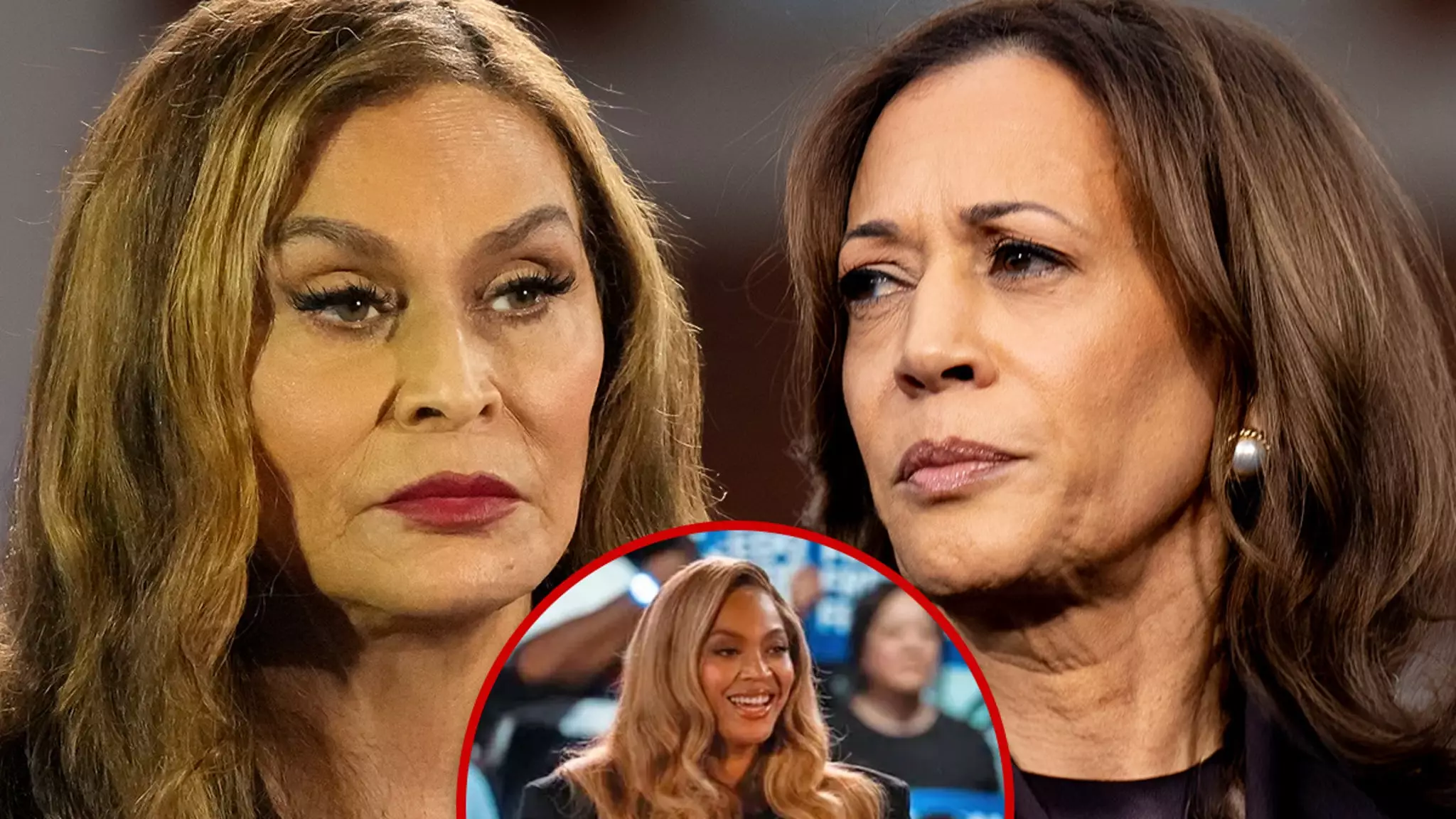In an age driven by social media and rapid dissemination of information, it’s alarmingly easy for misinformation to spread and take on a life of its own. Recently, Tina Knowles, the mother of music icon Beyoncé, found herself in the midst of such a scenario, vigorously defending her daughter against false accusations that suggested Beyoncé was compensated millions to support Vice President Kamala Harris during her campaign. Knowles, demonstrating her fierce maternal instincts, turned to Instagram to combat the rumors with clarity and decisiveness.
Debunking the Falsehoods
In a pointed Instagram post, Tina Knowles labeled the allegations as “hogwash,” stating that they were “fake news” which had been flagged and removed from the platform. This highlights an important issue in today’s digital landscape: the distinction between fact and fiction is oftentimes blurred. The assertion that Beyoncé was paid $10 million to attend a rally not only undermines her commitment to social and political issues but also tarnishes the reputations of both her and Vice President Harris. According to Knowles, the truth is that Beyoncé not only attended the rally without compensation, but she also covered her travel costs for herself and her team, a fact that underscores her genuine investment in the cause.
Tina’s fierce stance was not in isolation. Fellow musician John Legend echoed her defense, applauding her determination to clarify the realities behind such allegations. Legend reaffirmed that artists, including himself, participated voluntarily because they are passionate about the direction of their nation, rather than for monetary gain. This community spirit among artists fosters a deeper connection with societal issues, and their willingness to sacrifice personal gain for the greater good speaks volumes about their character and intent.
The Broader Implications
Unfortunately, this scenario is not unique to Beyoncé or Kamala Harris. Such myths can damage reputations and distract from the substantive issues at hand. Oprah Winfrey also found herself battling similar rumors following Harris’s electoral defeat, as her involvement was similarly misconstrued as financially motivated. Winfrey, like Knowles, asserted that she received no payment for her participation. This consistent pattern of misinformation directed at prominent figures highlights a troubling trend: society often reacts with skepticism to genuine acts of support, vilifying celebrities rather than acknowledging their philanthropic efforts.
The response from Tina Knowles should not just be viewed as a mother defending her child, but as a broader call to action for vigilance against misinformation. Celebrities often encounter the tumult of public opinion, magnified by the internet’s reach. Their voices can influence societal change, and it is crucial that the motivations behind their actions are not diluted by false narratives. In an era where social media can easily distort reality, Knowles’s assertiveness serves as a reminder of the importance of truth and the responsibility of all individuals to seek it out. In doing so, she sets an example of accountability and advocacy that resonates beyond the celebrity bubble, encouraging others to fiercely protect truths in their own lives.

